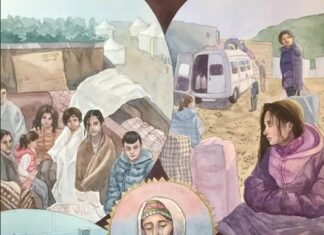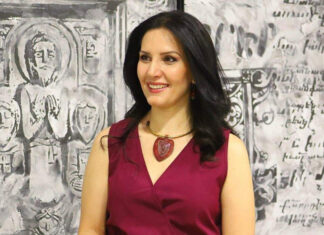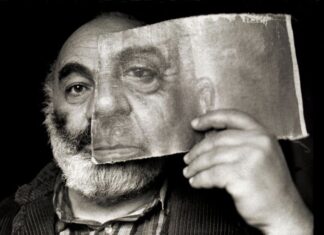GLENDALE —The dedication of the book Haleb, Arachin Gayaran (Aleppo, the First Station) by Zaven Khanjian was held on March 3, by the Tekeyan Cultural Association’s Los Angeles Chapter with a capacity crowd at the Armenian Society of Los Angeles Center.
The program was emceed by Vache Semerdjian of the Tekeyan Cultural Association (TCA), who explained that the reason that the association published Khanjian’s book was due to the candor as well as dynamic style of writing, which captivates the reader. During the program, Semerdjian read excerpts of letters by admirers of Khanjian’s books from different parts of the world.
Architect and musicologist Hrant Agbabian, who is currently working on ceramic sculptures, presented Khanjian’s biography in English with a refreshing style. He admitted that even though they went to the same schools, although at different times, they had the same teachers, he couldn’t compare his Armenian with Khanjian’s. Agbabian said that Khanjian had graduated from the American University in Beirut with a degree in business administration. He had met his wife, Sona, during a Chanits youth group conference in Kessab, moved to the United States in 1979 and set up a broker-realtor office in 1987. Agbabian summed up that Khanjian “as a man who breathes and lives as one devoted to his people.”
Lena Bozoyan, chairperson of the Armenian Relief Society of Western USA (ARS) Regional Executive, started by saying that today we are all “Halebtsis.” She provided insights on Khanjian’s leadership style describing him as cautious yet bold, balanced, impartial and wise, and a leader who inspires hope, and calms nerves when confronting challenges.
Bozoyan explained the role of the ARS ahead of the formation of the Syrian Armenian Relief Fund (SARF), and praised Khanjian’s role in leading as chairman of the Executive Committee (since August 2012). Even though she is from Lebanon, her mother is from Kessab, so she spent many summers in Kessab. When she read the book, particularly about Kessab, she was truly moved, and would understand why those who are from Aleppo are so excited about the genuinely connecting to the stories in the book.
Accompanied by pianist Ruzanna Vanessian, tenor Raffi Kerbabian’s voice resonated in the hall as he sang three favorites, the last one being Tercheyie Mdkov Doon (metaphysically flying home), which rang true about the rush of memories, which were being evoked by Khanjian’s writings.









